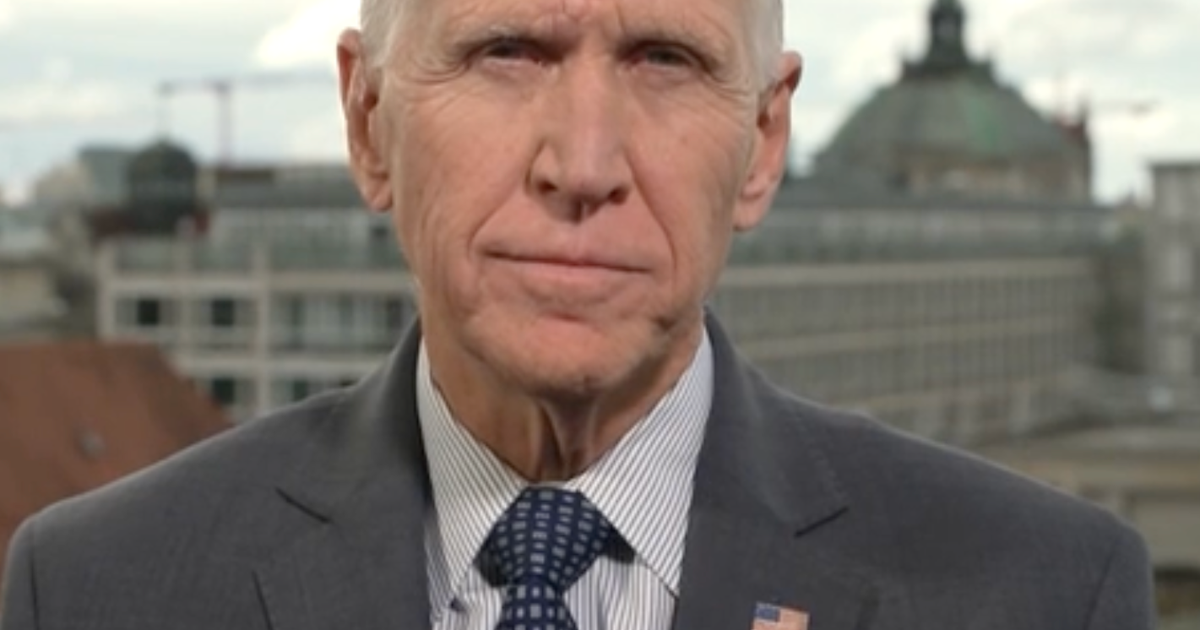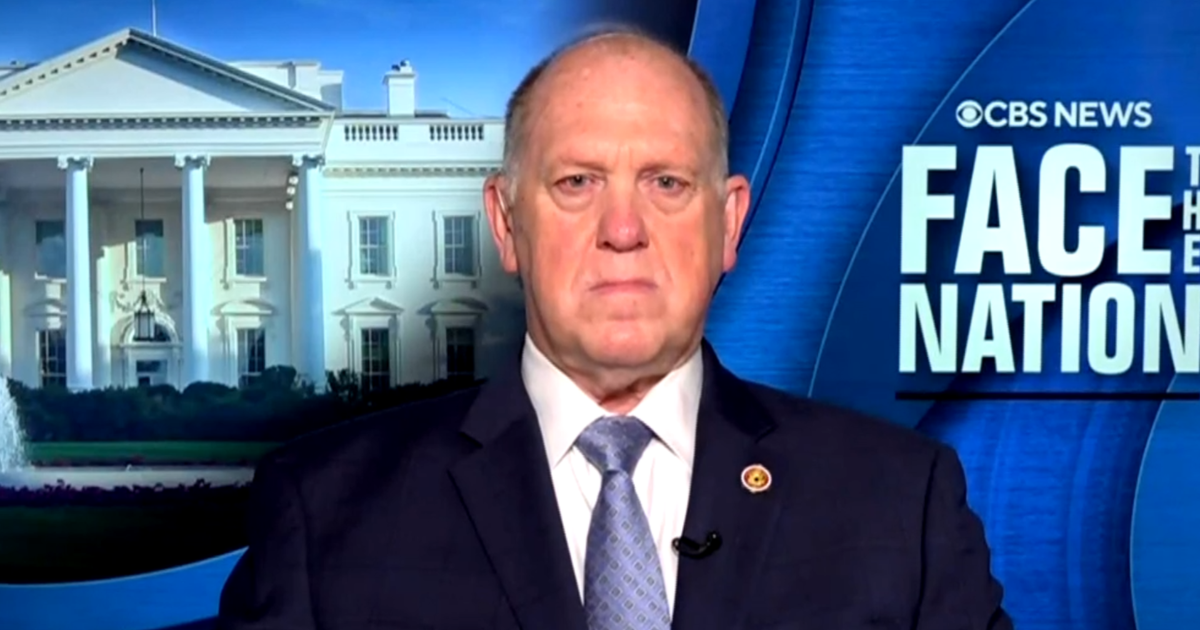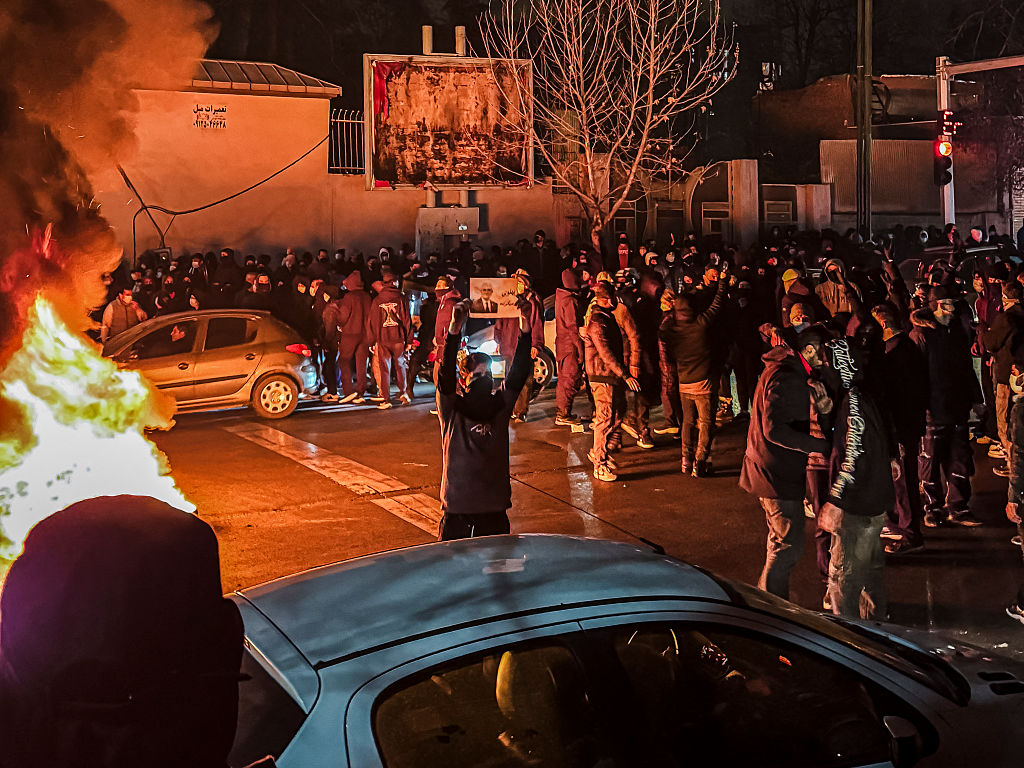Transcript: Chief Carmen Best on "Face the Nation," June 14, 2020
The following is a transcript of an interview with Seattle Police Chief Carmen Best that aired Sunday, June 14, 2020, on "Face the Nation."
MARGARET BRENNAN: We go now to Seattle, where this week several blocks of one neighborhood were shut down in order for protesters to hold demonstrations against racial injustice and police brutality. The police there vacated the precinct. It's a situation that has drawn considerable criticism from President Trump. Joining us now is Seattle Police Chief Carmen Best. Good morning to you, Chief.
SEATTLE POLICE CHIEF CARMEN BEST: Good morning, MARGARET. Thank you so much for having me here.
MARGARET BRENNAN: I want to talk about what's happening in your city. But first off, I want to give you a chance to respond to what you just heard the two senators talking about, which is how you do your job. What do you think of these proposals?
CHIEF BEST: Well, you know, I can tell you, MARGARET,. I think all the time about how we might improve policing and what- what we're experiencing in the field every day. I absolutely believe in accountability. But I think it's- we've moved away from using the word reform. We were under a consent decree and the Seattle Police Department for almost a decade. We followed every rule and everything that was asked of us to do, yet here we are--
MARGARET BRENNAN: That was the Justice Department looking at whether there was a pattern or practice of bias in policing. That's why you're referring to.
CHIEF BEST: Yes. Yes. And that's- that's what the consent decree is. And essentially, they laid out a roadmap and a game plan for us to follow while they reviewed us with a federal monitor. But what I- what I believe, especially after I was at a march yesterday, or the day before yesterday with Black Lives Matter, and I was looking at the 60,000 people that were there, signs saying, you know, defund the police, stop police brutality, you know, no qualified immunity. And there were thousands of people carrying those particular signs. And I just realized it was a moment, an epiphany, that this is a pivotal moment in history. We are going to move in a different direction and policing will never be the same as it was before. And I--
MARGARET BRENNAN: What do you think specifically of reducing community?
CHIEF BEST: Well, I think that's really a conversation for the politicians and the judicial people to have about how that works and what that looks like. I think there are various iterations that have been proposed, and I think that that is a better discussion in that arena. But I do believe that the considerations of the public need to be infused in whatever that outcome is.
MARGARET BRENNAN: OK.
CHIEF BEST: And so I would I would have to defer to that as a better forum to have that discussion. I- I can say--
MARGARET BRENNAN: I want to--
CHIEF BEST: Go ahead.
MARGARET BRENNAN: Sorry. Let me just take a real quick break here, because I want to talk to you and give you time to explain what is going on in Seattle right now.
CHIEF BEST: Sure.
MARGARET BRENNAN: Let's take a commercial break and continue the conversation with police Chief Best. In our next half hour.
(COMMERCIAL BREAK)
MARGARET BRENNAN: Welcome back to FACE THE NATION. We want to continue our conversation with Seattle police chief Carmen Best. Chief, thank you for staying with us. You know, there's a lot of focus on your city. Republican lawmakers have called this six block area that the police had left and that protesters are occupying, they're saying it's like a war zone, that warlords are running rampant. The president himself has said domestic terrorists have taken it over. You're the police chief. What is happening in this so-called Capital Hill Autonomous Zone?
CHIEF BEST: Well, there are people who have occupied the area. My understanding is they've actually changed the name to the Capitol Hill Occupied Protest area. There are a lot of folks there, a lot of differing objectives and agendas and people who have congregated into the area. One of our real challenges there is trying to determine who is a leader or an influencer. And that seems to change daily. I know that many of our city officials and others are trying to establish some sort of communication with someone who can give us some direction about what the intent is and how we might move forward.
MARGARET BRENNAN: So I had read reports in The Wall Street Journal and elsewhere that there were negotiations underway with Black Lives Matter who we're saying they didn't want to hand over control until funding to the police was cut. You're saying it's actually not that clear of a negotiation. How long will this last?
CHIEF BEST: Yeah, those are great questions. I wish I had the answer to how long it might last. I can tell you that we want to move it forward as quickly and efficiently as possible. But my concern as a police chief, besides that I want to be back in our precinct doing the work, is that we don't want to- we don't want anyone there to be harmed. We don't want this to be something that devolves into a force situation. So we're really trying to take a methodical, practical approach to reach a resolution where everyone gets out of here safely.
MARGARET BRENNAN: But you believe it's peaceful? Just to be clear.
CHIEF BEST: For the time being, yes, it is.
MARGARET BRENNAN: OK. You are a police chief and I just wonder when you look at what has happened overnight in Atlanta where this shooting occurred. The two officers involved are under scrutiny. One of them was fired. The police chief herself resigned, even though she had- was not present or overseeing this directly at that moment. And I wonder, given all the tension, what it is like to be a police chief right now? Do you feel like there is just zero room for any kind of error? And have you changed the way you're doing your job?
CHIEF BEST: Well, certainly, I'm sure you're probably aware of the temporary restraining order that does not allow us to use pepper spray or gas- flash bangs or CS. So in some ways, there's already been a change that we're having to work through. I can tell you this, I was mentioning earlier that I was at the Black Lives Matter March, and I saw many people carrying signs about defunding the police, ending police brutality and looking at resolving the qualified immunity issue. So I know standing there watching and listening that we're going to change in policing. We have to. It has to be a movement that involves everybody. And we need to reimagine and re figure out, if you will, how we're going to move forward as a country and as an organization to make things better for everybody. It's incredibly difficult, but with every challenge, there's opportunity. There's opportunity to move forward and bring people together and get positive change. I absolutely believe that.
MARGARET BRENNAN: Alright.
CHIEF BEST: So some stressful situations are not going to deviate me or my organization from leading the way in trying to make things better for all of us.
MARGARET BRENNAN: Well, Chief, good luck. Thank you very much.
CHIEF BEST: Thank you. Thank you for having me.



